Critics give mixed response to ministers' £1.6bn disability strategy
- Published

There has been a muted response from charities and campaigners to the government's £1.6bn strategy to improve the lives of disabled people.
Ministers have unveiled 100 pledges to tackle issues such as housing and inaccessible public transport, as well as barriers to education and work.
Work and Pensions Secretary Therese Coffey said the government was listening and consulting.
But a disabled Tory peer Lord Shinkwin said the plans were a "damp squib".
The government says its National Disability Strategy - first announced by the prime minister at the last election - is a once in a generation transformative plan.
It promises £300m will be provided to support children with special educational needs and disabilities.
Other measures include:
Increase the number of accessible homes and adapt older properties
Pilot an Access to Work Adjustment Passport making it easier for disabled people to change jobs
Increase the number of disabled people working for government intelligence agencies. MI6 has a target of 9% by 2025
Audit mainline railway stations for disabled accessibility
But speaking on Radio 4's Today programme, Lord Shinkwin said he did not see it as a proper strategy, adding that it was "more of a mixture of a to-do list and a should have done by now list".

'Families are locked in battle with local authorities'
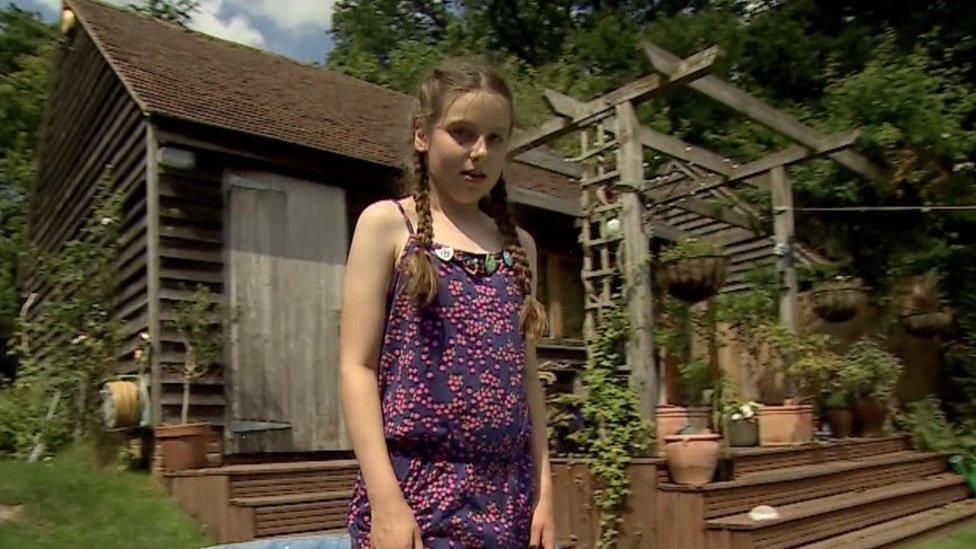
Florence, 11, was struggling in a mainstream school and needed specialist provision
The current system failed when it came to Florence Karlsen's education.
The 11-year-old from Surrey, who has autism, epilepsy and global developmental delay, was struggling in mainstream school and needed specialist provision.
Florence's family had to pay £15,000 in legal fees in a battle with their local council to ensure she was sent to a school that met her needs.
Her father William said: "We selected the school we wanted Florence to go to and the council selected its choice but we weren't happy with the choice they made.
"It was not a good choice as far as we were concerned.
"We decided to take the council to tribunal to argue our case. We had to fund all our own private reports, and employ our solicitor, which is a hugely expensive process.
"There are hundreds of families locked in battle with their local authorities. It's the last thing you want to be focussed on when you want to be focussed on your child's wellbeing and education."
Florence is now in a school which meets her needs. Mr Karlsen welcomes any extra funding but believes there needs to be a clear process when it comes to making sure disabled children are not shut out of education.

Lord Shinkwin said one of the major failings with the plan was in the area of employment, with a focus on recording the number of disabled people in the workforce rather than reporting the pay gap between them and non-disabled colleagues.
He said he did not think the strategy would "make a massive difference".
"It comes across to me more as a PR exercise by the government to make non-disabled people aware of the wonderful things it claims it has done or was going to do for disabled people," he said, adding there is a "world of difference between meaningful engagement" and consultation.
"This is not a document that ministers can claim is owned by disabled people in consultation with government," he said.
Charities which represent disabled people welcomed some of the measures but said other aspects lacked scope and ambition.
Sense, which campaigns for better lives for deaf and blind people, said it was a "small step" that would not produce concrete actions resulting in lasting improvements.
Mark Hodgkinson, chief executive of the disability equality charity Scope, welcomed the consultation on mandatory disability reporting, and improvements to public transport.
But he said families would gain little beyond tweaks to the education system and the government had not set out how it will close the disability employment gap, which stands at 28.6%.
He said: "Many of the short-term commitments made are to be welcomed, but the strategy as a whole falls short of the transformational plan that many disabled people expected and deserve.
"Unless we get clear detail beyond the next 12 months, it is difficult to see how life will be significantly different for the next generation of disabled people."
Labour said the strategy was "a lacklustre effort with too much talking and not enough doing".
Shadow minister for disabled people Vicky Foxcroft said: "The whole consultation process failed to properly consult with disabled people organisations, while many critical areas such as collecting data, adequate funding and the ongoing crisis in social care were completely ignored."
Speaking on Radio 4's Today programme, Work and Pensions Secretary Therese Coffey acknowledged the criticism, but said that the government was listening and consulting.
She added: "Whether it's about aspects of social isolation, making it easier for people to travel, whether it's about people getting access to the countryside, things we all take for granted when we don't have significant disabilities and that's what we are trying to do as well as improving people's life chances by getting in to work and staying in work.
"So there is a variety of ways that we are working right across government and genuinely I believe this will shape people's lives in a way that makes it that bit easier every day. "

DINA IS RACING FOR MORE: The sprinting star on the pressure to take gold in Tokyo and life off the track
THE HIDDEN HISTORY OF OUR NHS: The nurses, doctors and health workers from overseas who have transformed our health service

Related topics
- Published30 June 2021
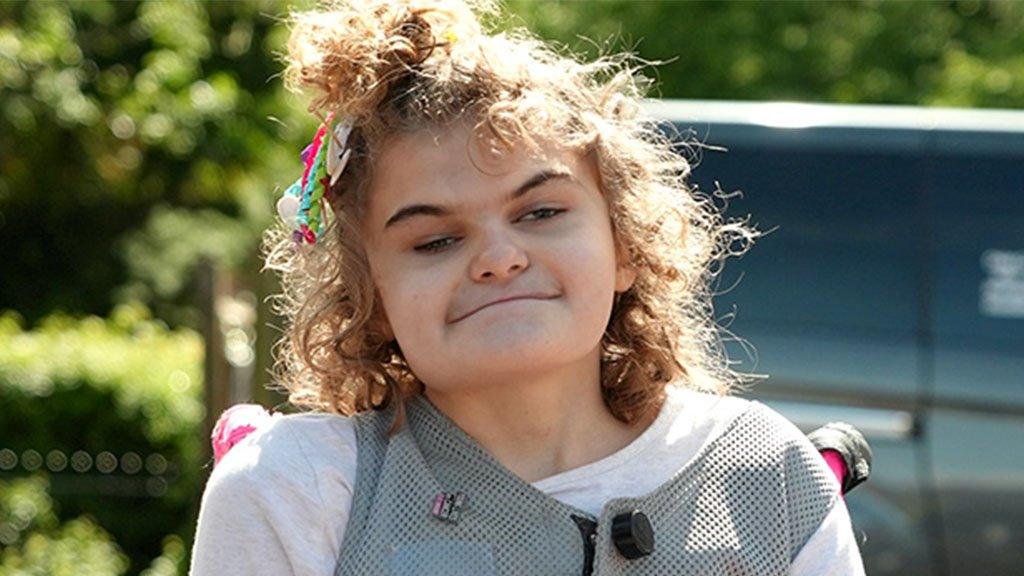
- Published19 July 2021
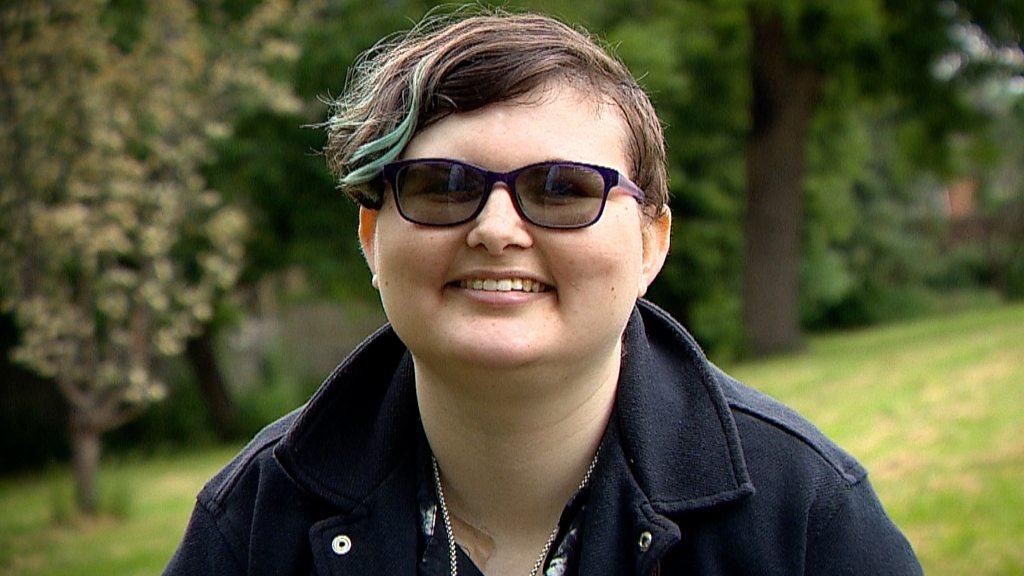
- Published16 July 2021
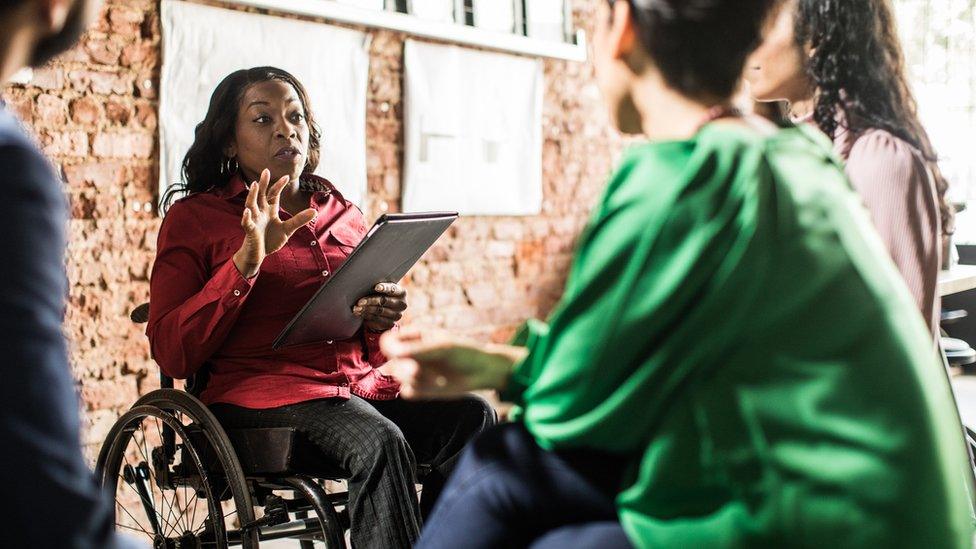
- Published7 January 2021
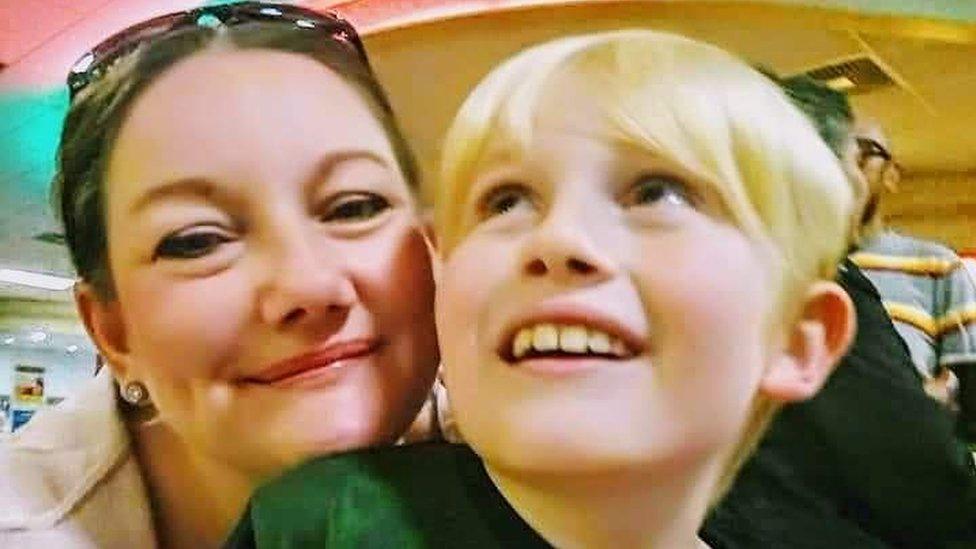
- Published24 November 2020
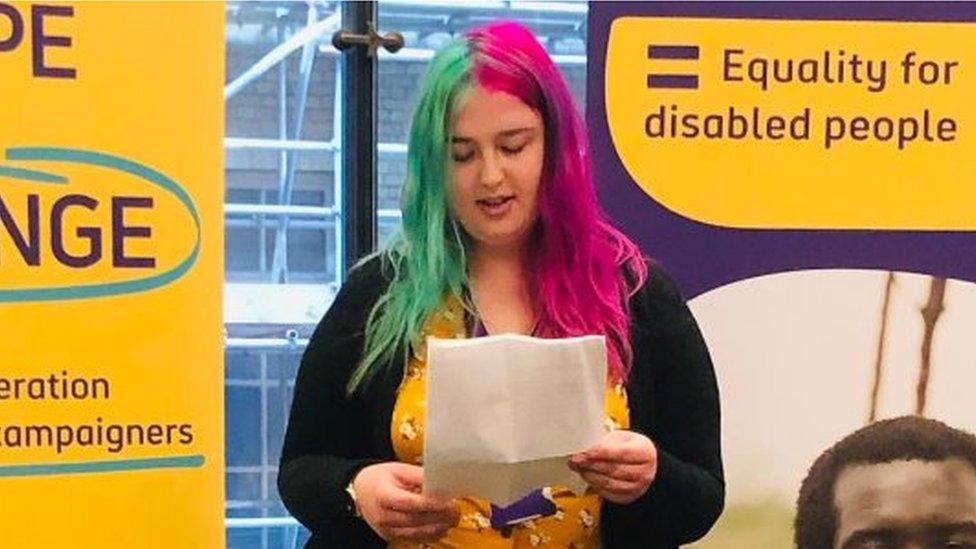
- Published17 September 2020
